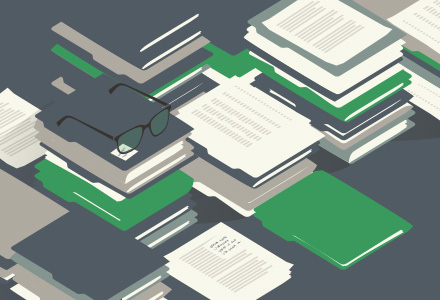Better Systems for Creativity
5 tips to help you be more focused and more creative at work.

Humans have become comfortable with being constantly overwhelmed and habitually distracted. And although it’s a new norm for most of us, it’s not great for productivity or creative thinking.
We know why and how we got here—the internet, emails, cell phones, social media, digital news feeds, hybrid working environments—the list goes on and grows every day. This system in which we exist and are expected to do our work is not efficient or effective. It’s not because we can’t handle it all. It’s because we can’t handle it all at the same time.
How inefficient thoughts happen
After reading “Brain Rules” by John Medina, I’ve become convinced that mental multi-tasking (of which I used to be a self-proclaimed expert) is not only impossible, it’s the most inefficient way to accomplish anything.
Don’t get me wrong. Of course you can run the dishwasher and the dryer at the same time as you write an email, all while chewing gum. But you can’t think about each of those tasks at the same time. To get non-automated thoughts out of our brains, we have to focus on the task at hand. And each time we pause—even for a millisecond—to think about something else, our brains need to adjust and then refocus back before we can proceed. Milliseconds don’t seem like much in the moment, but if you add up all the times during the day that this bounce-around thinking happens in your brain, you start to see how taxing it can be on our focus and our time.
How to change your systems
The good news is our bodies and brains are amazing machines that have figured out how to do things that we don’t need to think about. Your heart beats and you breathe without a single thought every day. But for the tasks that require thinking—especially creative thinking—we need to keep focused to be efficient. Easier said than done, right? Well here are 5 tips to help you get started.
1. Start with a list.
If you get your “to-do” thoughts out of your head and on to a list (paper or electronic), your brain can relax with the knowledge that you don’t have to keep remembering things so you don’t forget. Plus, it gives you a way to prioritize what’s most important, focus on each item, one at a time, and track your progress. And if your list is too overwhelming, you can decide if some tasks can be delegated to others.
2. Practice mindful exercises.
This includes deep breaths, meditation, and a focused awareness of the sights, smells, and sounds around you. Awareness of self and surroundings is the first step to finding focus in any part of your life. Here’s a list of 10 simple things you can do throughout your day to help you recenter your mind and intentions.
3. Remove your obstacles.
Your brain can’t help but hear those dings, buzzes, and background sounds. Give your mind a break by turning off your email, phone, music, or other distractions to unlock your own creativity. Find a quiet, comfortable, and well-lit place to do your best work and you’ll be surprised at how quickly you will get through your list of items that require concentration or innovative thinking.
4. Schedule good interruptions.
Not all breaks in our thinking are bad. In fact, research supports that taking breaks (and even naps) improves memory, aids digestion, and makes our brains quicker at problem solving. Plan for intentional small breaks each day to help you avoid the 10 million-millisecond breaks that are decreasing your real focus.
5. Be grateful.
There are a lot of good books and a significant amount of research about this topic. We are happier, healthier, more inspired, and more focused in life if we stop to appreciate all that is good rather than focus on the things that stress us out. Attitude is everything in finding true balance so start and end each day—or at least each workday—with a moment of grace and gratitude.
Clear Communication Between Teams
Advice from a marketing expert who’s known for her ability to get everyone on the same page.
Brainstorming without Homework = Incomplete
Don’t forget to hit the books for your next brainstorming session.
The Best-Run Meetings
5 tips to make your meetings more effective.



